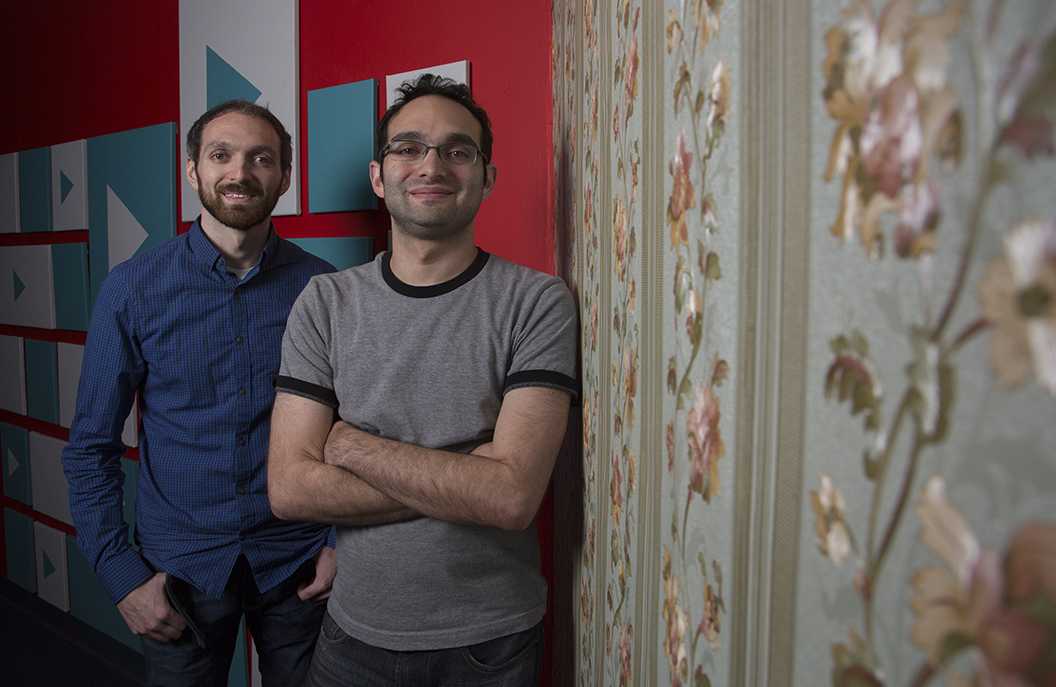Photo Courtesy of Tribune News Service – Rafi Fine, left, and Benny Fine, right, who comprise The Fine Bros., a mega-popular YouTube channel with more than nine million subscribers, pose for a portrait July 17, 2014 in their studio in Burbank, Calif. Their success has enabled them to start their own production company, Fine Brothers Entertainment.
Commentary by Joseph Valencia ’17
THE ROUNDUP
In a time where copyright issues on YouTube couldn’t be worse, Benny and Rafi Fine, better known as the Fine Brothers, made a move to copyright the word “react.”
Let’s start with the copyright issues, which started small but soon grew and reached a head in 2013.
When a YouTuber makes a video, it’s automatically monetized by YouTube, and the amount of views it receives determines how much revenue will be made. Most large YouTubers became well known through videos where they okay video games in front of a webcam.
Sometimes the companies that make the game will see a YouTuber showcasing their game to be unfair, and they will file a copyright claim against the YouTuber.
While the claim is being processed, the video isn’t monetized, and the content creator ceases to make a profit on the video. Copyright claims became rampant in 2013, leaving the YouTube community hating copyright claims.
The Fine Brothers have one of the largest channels on YouTube, with over 15 million subscribers. Their claim to fame came through their unique and stylized reaction videos.
Reaction videos consist of people watching another video while being filmed. The viewers’ reactions are filmed and played alongside the video they were watching.
The Fine Brothers capitalized on react videos, and used them to gain Internet stardom, and they hoped to expand their channel using smaller subsidiary channels.
Their plan was to create a monopoly of sorts on react videos through a system they were calling “React World,” which they announced in a video that was taken down.
Under “React World,” the Fine Brothers would give other YouTube channels the right to use their “react” video format. However, joining “React World” would entitle the Fine Brothers to 40 percent of the profits made by videos using their format.
Monopolistic issues aside for now, the Fine Brothers were never the pioneers of reaction videos that they think themselves to be. What hubris for them to come out and say that they own an entire genre of YouTube videos.
They even went so far as criticizing Ellen Degeneres on social media for using their style of react videos without their permission. This began when a segment of Ellen’s show had her sit down with children and have them watch different types of videos.
The Fine Brothers need to realize that they are far from the first people to capitalize on reaction videos.
One of the first television shows to highlight reactions was Alex Linkletter’s “House Party,” which ran on CBS from 1945 to 1967. It was later made into Bill
Cosby’s “Kids Say the Darndest Things,” which ran on CBS from 1998 to 2000, according to IMDB.
The shows featured Cosby and Linkletter asking young children various questions and watching their reactions. YouTube didn’t even exist in 1945 or 1998, so in a world dominated by copyrights, CBS could sue the Fine Brothers for mimicking their style.
As of now, the Fine Brothers have scrapped their “React World” idea, after they were met with overwhelming backlash from all corners of the YouTube community. They lost hundreds of thousands of subscribers from the entire debacle.
The backlash was so severe that a Twitter movement formed called “unsub the fine bros.” Some YouTubers even made live streams showing the Fine
Brothers losing subscribers in real time.
One video made by a professional copyright attorney showed how difficult it would be for smaller channels to succeed under the “React World” program.
He also explained how copyrighting an entire genre on YouTube was abusive and monopolistic.
As the Fine Brothers begin their gradual recovery, they serve to set a precedent in the YouTube community against abusive copywriting.




















